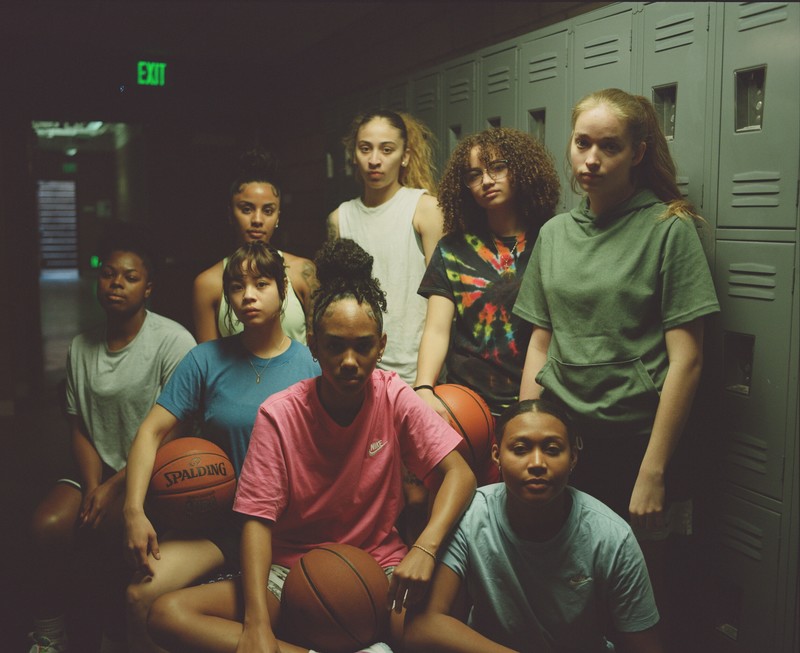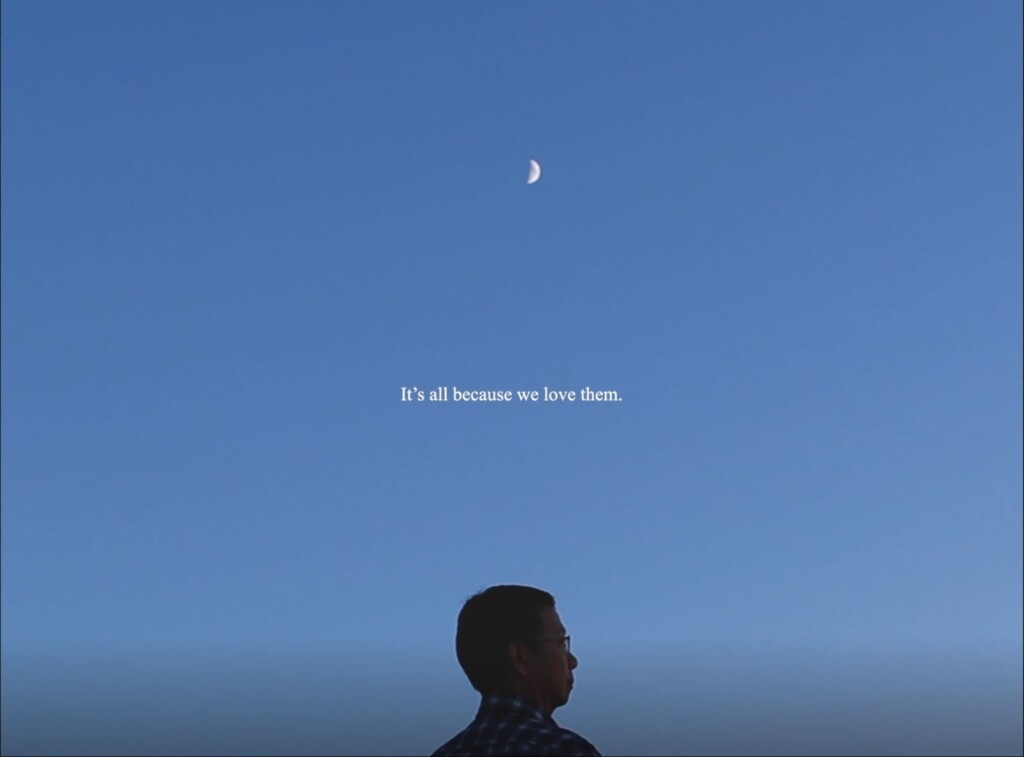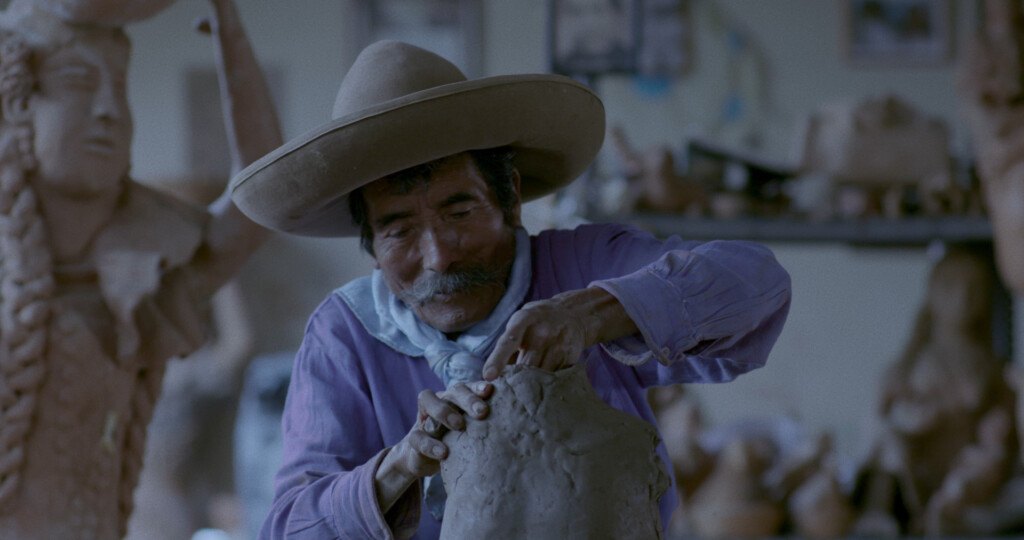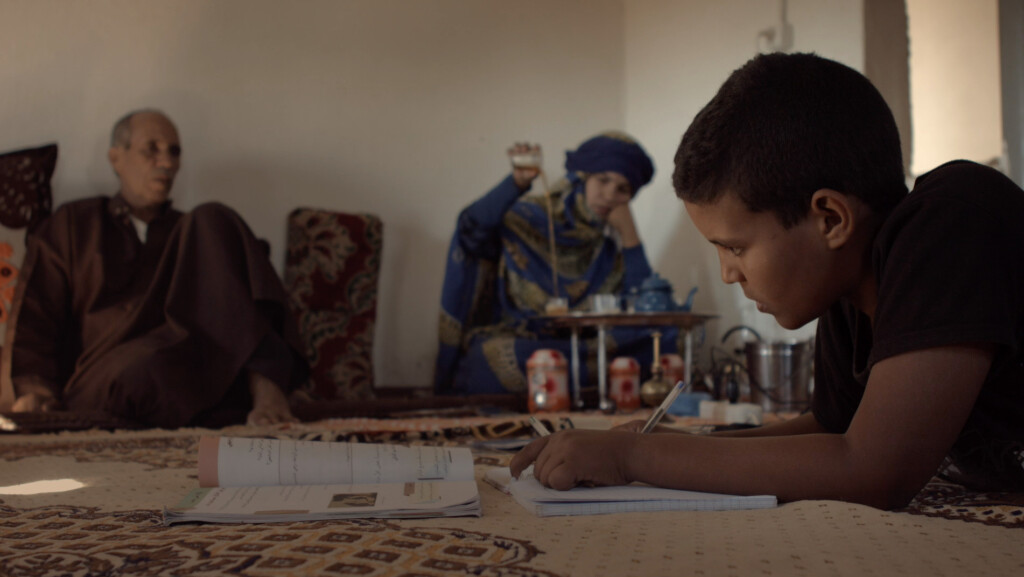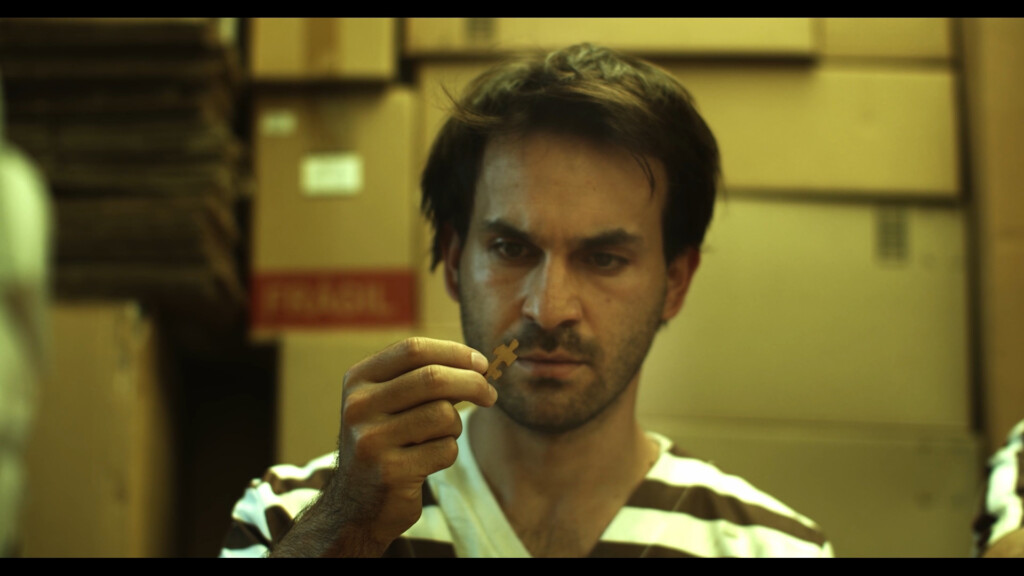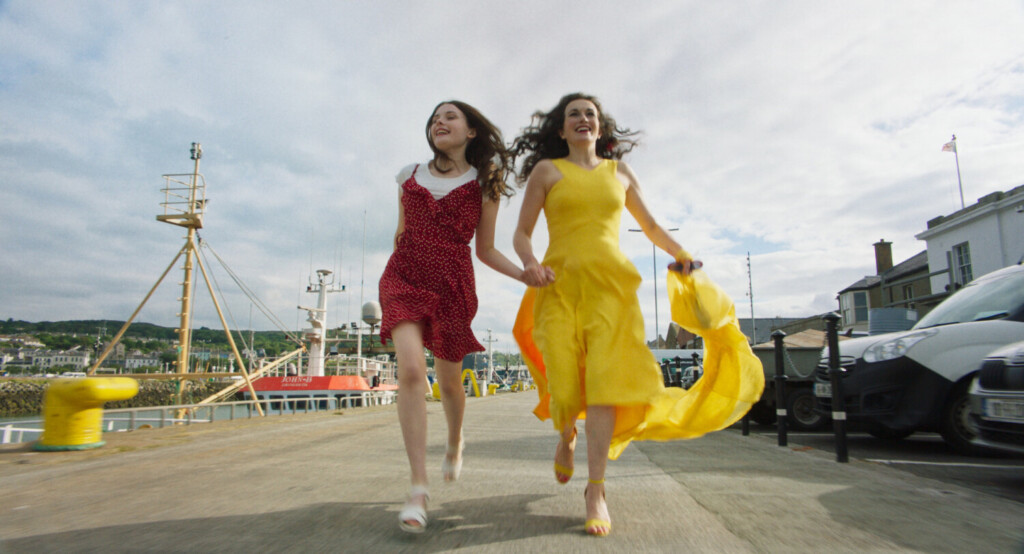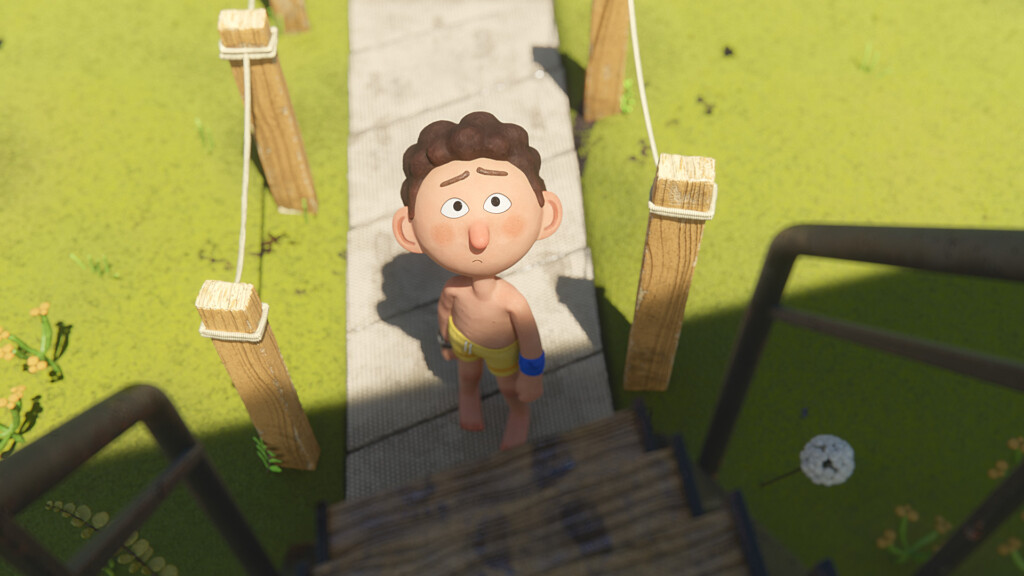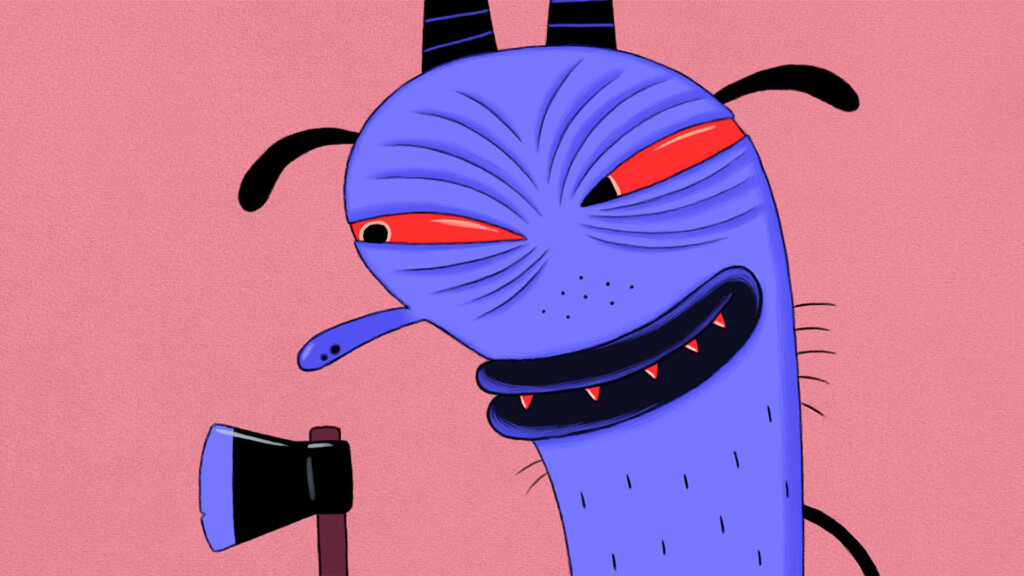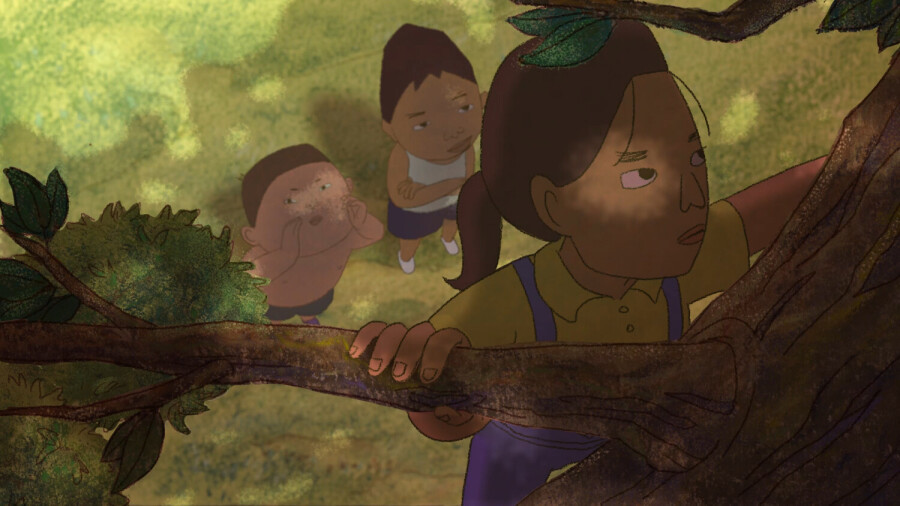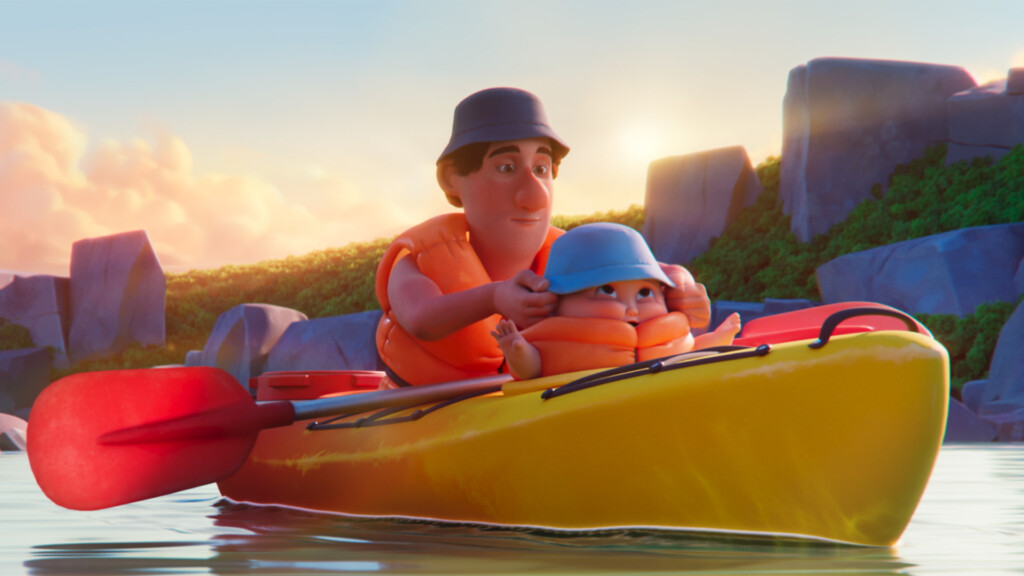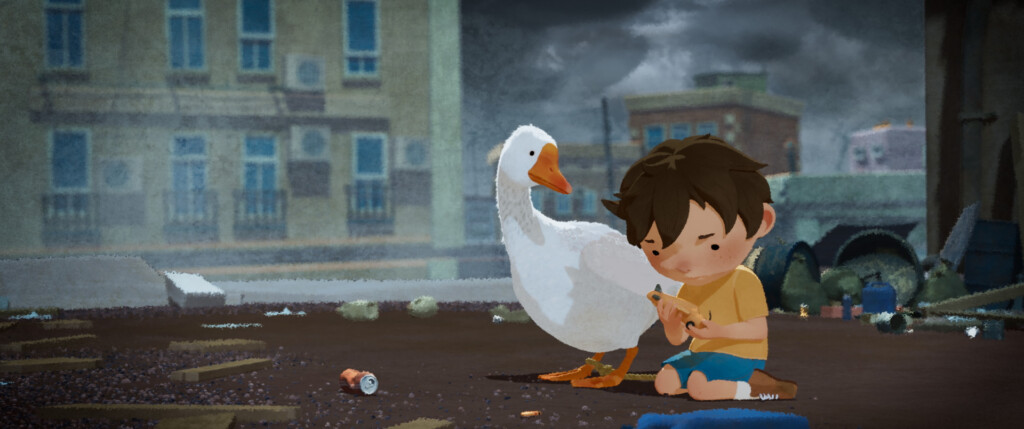EDITOR’S NOTE: This is the centerpiece preview feature of the 19th Fear No Film program at the Utah Arts Festival. For a complete rundown of the Utah Made Film slate, see here. For a complete rundown of the Midnight film slate, see here.
In its 19th year, the Fear No Film program at the Utah Arts Festival stands out as the most internationally diverse of its history. It also is the most diverse mix of debut and veteran filmmakers, with outstanding entries including an Academy Award nominated live action short in 2021, and numerous award-winning shorts including one that has played at more than 50 international festivals. There is a world premiere, at least one U.S. premiere and a large number of Utah premieres.
Four filmmakers who have appeared in previous years are returning including Luis Fernando Puente, who won the 2021 Fear No Filmmaker Award; Jared Jakins, who won the Grand Jury Prize and the Utah Short Film of the Year in 2019; Julia Ocker, whose short animated film in 2019 took the audience award in the Kids program and Gaele Sobott, who had an animated short in last year’s program. Dustin Grella has two films accepted in this year’s program.
The effects of the pandemic are still being felt in the number of submissions, given that many independent film projects in progress during the height of COVID-19 waves were stalled. While the 317 submissions this year are more than 15% higher than the total received last year, the number is still lower than in the years preceding the pandemic.
Nevertheless, there are 71 films, the second highest total in the program’s history. Thirty-two (44%) are helmed by female directors and 16 are by first-time directors (22%). Coming from outside of the U.S., 40 films, representing 22 countries and 11 languages, are part of the 2022 slate. That is, more than 56% of the slate confirms the true cosmopolitan nature of the program.
France (seven films), Germany (five films) and Mexico (three films) lead the international list, followed by Belgium, Israel and Spain with two films per country. Countries that are being represented for the first time on the Fear No Film slate or are returning after several years’ absence include Ireland, Argentina, Venezuela, India, China, Slovenia, Romania, Sweden and Lebanon. Other countries include Canada, Turkey, The Netherlands, Austria, Iran, Denmark and Australia. There are 13 entries in two programs of Utah Made Films.
The most striking feature of this year’s Fear No Film program is the distribution of media genres. Animation comprises well more than one-third of the selected films, as represented by some of the world’s best known animation studios and groups. France is well known for its gorgeous renderings in animation. And, then there is Yoriko Mizushiri, whose submitted film (Anxious Body) was screened last year in the Directors’ Fortnight section of the 74th Cannes Film Festival.
This year represents the smallest number of documentary short films, represented by one program of five films as well as six by Utah based filmmakers in the Utah Made programs. But, unquestionably, the narrative selections for this year’s Fear No Film are the strongest in storytelling impact that The Utah Review has seen in the history of the program, which is now the fourth largest venue in the UAF campus. This includes one of the two films from Israel — Tomer Shushan’s White Eye, which was nominated last year for the Academy Award for Best Live Action Short. Indeed, as the full rundown of the slate indicates, many of the films evoke the aesthetic spirit of fearless filmmaking, which encompasses the artistic branding of this short film festival program.
Derek Mellus, production coordinator of the Utah Film Commission and Fear No Film coordinator, has slated 12 programs in the rotating schedule, all of which will be screened in the City Library Auditorium. They include: one program of Documentary Shorts; a program of KIDS! Shorts; two programs of Animated Shorts, three programs of Narrative Shorts; three programs of Midnight Shorts and two programs of Utah Made Short Films. There will be jury and audience choice awards as in previous years, including the Grand Jury Prize and Fear No Filmmaker award.
The documentary, narrative, animation and Kids portions of the slate are included below. See here for a full rundown of the two programs of Utah Made Short Films and here for a full rundown of the three Midnight programs, which will screen daily at 10 p.m. Thursday through Saturday, June 23-25.
Documentary (June 23, 1 p.m; June 26, 2 p.m.)
And Still, We Thrive, this Canadian documentary short, which barely runs five minute, nevertheless, is a substantial portrait of the poise and grace of dignity and well-being that Asian American immigrants who come to North America maintain even as they navigate the struggles of making their livelihood and new homes as fulfilling and productive as possible. The director, Joy Xing, 18, lives in Markham, Ontario and has two other short films that have appeared at international festivals, including The Pursuit of Happiness and The Taste of Home.
The Beyond, a Swiss film directed by award-winning Daniel Maurer, follows a hospital employee who works in the morgue and, as fatalities rose sharply during the pandemic, he ponders more closely the questions about the individuals, whose bodies are being embalmed and dressed for viewing by their survivors.
Dajla: Cinema and Oblivion, a Spanish short directed by Arturo Dueñas Herrero, is a fascinating sociological observational piece about a Sahrawi refugee camp in southern Algeria, which is obscure and has been overlooked for many years. The one event held annually, though, is the Fisahara film festival, which brings a pleasant but brief respite.
Intrepid is an animated documentary piece directed by Dustin Grella, who has a second film being screened in the Animation 1 program. Nine years ago, the Intrepid Sea, Air and Space Museum complex began compiling oral histories to augment the exhibitions and to mark the 75th anniversary of the institution, the museum contracted Grella to present the stories of four oral history narrators in the project titled Intrepid Animated.
A Poet in The Dark, a Mexican short documentary directed by Juan Urgell, could not be a more ideal pick as a Fear No Film entry for the Utah Arts Festival. The subject is blind sculptor José García Antonio and it’s a fantastic artistic documentary. Antonio fashions large sculptures of human figures by his bare hands.
Narrative 1 (June 23, 2 p.m.; June 25, noon)
Shot in black and white, the Spanish short Babel, directed by Alejandro San Martin, deals with a strange condition that robs people of their vital language capacities and eventually it becomes common that affected individuals must find the right person who can help complete sentences because of their limited abilities to utter disconnected phrases. Otherwise, it ends up being wholly incomprehensible. In order to observe what is occurring, society decides that it is best to quarantine them.
An excellent example of a cinéma vérité narrative, The Radio, featuring Venezuelan filmmaker Carlos Novella, is an understated yet poignant story about memory, its ephemeral nature and the changes in an urban landscape that suddenly seems unfamiliar. A grocer is desperate about repairing a radio that has served him throughout his life and searches the streets hoping for a solution. Novella filmed the short in Caracas and he explains in his artistic statement, “I started to wonder what happens to people who do not adapt to these constant changes; who cling to the elements they grew up with; who find it difficult to change? The story of those people who do not adapt to the consumption rhythms of this time, and who somehow go in the opposite direction, is the story that I was interested in exploring.”
Narratives in this year’s Fear No Film slate are well done and Plastic Dream, a Turkish short directed by Merve Bozcu, is a strong addition to the program. A woman in her late thirties becomes uncomfortably conscious about her skin and aging after seeing her doctor about a skin rash. The doctor recommends Botox injections but the treatment ends up being disastrous. Turkish films pack an ironic wallop and this short delivers it mightily in a style that would have been a worthy entry in classic television series such as The Twilight Zone. Bozcu explains more in her artistic statement: “We, women, live in a world where we are constantly compared to others, even if we are not aware of it. Aging, the fear of not being as beautiful as before, emerges like a bomb waiting for its hour. Moreover, there are definitions of that beauty. You realize much later that you forgot to ask yourself if you want to change in the way imposed on you. I am not against plastic surgery or botox, but I am against ideas that try to stereotype women with certain prejudices.”
Puzzle (La Última Pieza), a short from Mexico directed by Venezuelan native Ricardo Muñoz Senior, is an intelligent political satire set in a dystopian society where Albertini must navigate an unrelenting authoritarian bureaucracy to find the missing piece to complete a puzzle. This pastime carries symbolic meaning. As the director, who is making his directing debut with this short, explains, “Although the basis of the film is social criticism, the paradox of the puzzle as the main conflict is intended to emphasize the humorous, absurd and uncomfortable tone. At the same time, the search for the piece represents a metaphor for all kinds of bureaucratic obstacles that hinder projects, dreams or justice.”
Narrative 2 (June 24, noon; June 25, 4 p.m.)
From The Netherlands, Cuckoo!, directed by Jörgen Scholtens, is bound to be a Fear No Film audience favorite. The absurd humor pops appropriately in the story about a man who lives in a cuckoo clock and has the sole but important responsibility of coming out at the top of every hour to proclaim, “Cuckoo!, so that the elderly woman is reminded to take her medication. Meanwhile, the man has a chance to win cash in a radio show where he has to guess the object, which makes a specific sound. He immediately recognizes the sound but he struggles to decide how he can manage calling into the radio show without missing the one and only job he has.
Plan C, directed by Lauren Caster, is a worthy highlight in this year’s Fear No Film slate, as this is a premiere. A single unemployed woman finds out she is pregnant and is having terrible morning sickness. The father of the baby has no interest in living up to his responsibilities. With advice from a friend, she decides to launch an OnlyFans account and eventually discovers that some of her viewers are aroused by the sight of.a pregnant woman. Encouraged by the positive comments, she decides to put her baby registry online for her fans to purchase items. “I knew I had to make this film at seven months pregnant because it was a story I felt had to be told,” Caster writes in her director’s statement. “As a woman I was shocked by how little we talk about the real struggles of pregnancy from depression to body dysphoria to disconnection, it goes on. I was left feeling bamboozled from what I knew from other narratives because it was supposed to be a happy perfect time, right? This made me realize that we aren’t talking about it enough. What is actually normal and part of pregnancy is made to feel like you’re doing it wrong because of this lack of discussion.”
A rare entry from Ireland for Fear No Film, The Yellow Dress, directed by Deborah Grimes, is the example of a story that if it were made in the U.S. would end up more as a rom-com than as a genuine heartwarming story of a deep bond between a mother and her daughter. After her mother’s treatment for breast cancer and her father’s decision to leave the marriage, the teenage daughter decides to play matchmaker and set her mother up on a date with a guy she believes would be perfect. But, there is a twist when the date shows up with his teenage son.
Another superb entry that demonstrates the appeal of Fear No Film for outstanding directors, White Eye, an Israeli short by Tomer Shushan, was nominated in 2021 for an Academy Award as the Best Live Action Short. A man surprisingly finds a bike that was stolen from him and offers a passer-by 250 shekels to cut the lock. But, later in the story, the new owner of the bike, who is a refugee and needs it to travel to work, begs the man to let him keep it because he was unaware that it was stolen and had purchased it from someone at one of the bus stops in the city. In the hopes of making amends, the man offers to sell the bike back to the original owner for the same amount that he paid for it. In interviews, Shushan says the story is based on an experience he had with the same circumstances. The film’s camera work is phenomenal, as the crew only had one night to shoot the production. For viewers, it is as if they stepped naturally into the scene watching the action as it unfolds, as it is that seamless in its flow. The film is a compelling testimony to how we might deal with our own underlying prejudices in situations such as those portrayed in White Eye.
Narrative 3 (June 24, 8 p.m.; June 26, noon)
Champ, directed by Hannah Peterson, is definitely one of Fear No Film’s submissions to watch. After basketball practice, one of the athletes tells her teammates about a shocking encounter with her coach and the team decides to take matters into their own hands. The film stands out for it use of skilled basketball athletes as actors, which heightens the narrative impact. Peterson won the $80,000 top prize in the Through The Lens initiative, sponsored by Chanel and Tribeca Enterprises.
There have been a few short films over the years at Fear No Film that refer to the events of 9/11 in 2001. Free Fall, a French short by Emmanuel Tenenbaum, is inspired by a true story and highlights a young stockbroker whose job performance in a London bank is jeopardizing his prospects with the firm. When he hears news of the first plane striking one of the towers of the World Trade Center, he sees a stock trade that could more than eradicate the losses he has recorded recently. In his artist statement, Tenenbaum explains that he was inspired by a story shared in the 2008 nonfiction book Swimming with Sharks by Joris Luyendijk. “In the book, an anecdote caught our attention: a trader who understood, 10 minutes before the rest of the world, that the plane crashed into the World Trade Center was a terrorist attack. This trader could generate gigantic profit that day, but it is only when he was doing his report at the end of the day that he remembered he had friends in the towers, and that he never thought about them for a second.”
I Mustache You, directed by Shara Ashley Ziegler, is an entertaining comedy about a woman with agoraphobia and OCD who has been invited to an informal date in the park in New York City. The film mixes in inflections reminding viewers about the director’s love for the comedians of the silent film era, notably Buster Keaton and Charlie Chaplin, as well Looney Tunes cartoons. Zeiger, who says that she has dealt with mental illness directly as well as in her family, writes in her artistic statement, “It has always been a dirty word, and I want to shed a bright shiny light on it. We all go through many trials and tribulations to love ourselves, and all parts of ourselves. Was this journey real? Was it a dream? Were there two people or one? That’s up to you to decide, and they’re all correct.”
I, Phone, directed and written by Ian Ashley Wood, is a clever short which will resonate with practically everyone. It is an inevitable occurrence acquiring a new smartphone and practically spending every waking minute with it but then the time comes to replace it. In this artfully shot film, the doomed smartphone decides to end its own existence and says farewell to the other appliances, albeit with a biting jealous tone, which belong to the owner. The disposable era is brought to its deserved starkness in this smartly conceived short.
Just A Little, an Austrian short directed by Hanna Gruber, deals with touchy soul-burdening subjects and the difficulties in overcoming trauma and thoughts that become self-destructive. This is Gruber’s debut project as a director.
A hilarious satire, The Pitch, directed by Eno Freedman Brodmann, offers that fly-on-the-wall perspective about what the pitch process is like when an advertising agency pitches to a client. The pitch in this case attempts to link chicken nuggets to Bluetooth speakers. Meanwhile, the advertising staff is trying to outdo each other in ideas. It sounds absurd but to anyone in the media, Brodmann’s rendition hits close to reality. Brodmann, who is a classically trained musician and has worked as a commercial and music video director and designer, notes in his artistic statement the experiences which guided him in the making of this short. “After working in treatments in-house for a while, my mind was a melting pot of references and buzz words,” he explains. “It was overwhelming to switch modes from different products and looks every day. Our office would do artsy pitches for an alcohol brand, then a fashion campaign, and then aluminum foil or paper towel comedy ads.”
Animation 1 (June 23, 6 p.m.; June 25, 8 p.m.)
Animation Hotline, 2022 (Ohio Edition) is directed by Dustin Grella is an animator and documentary filmmaker. This short is part of a series comprising two hundred crowd-sourced telephone answering machine messages that he translates into animation. The project began in 2011 and this edition features messages from the Buckeye State.
A sophisticated animation piece from Lebanon with charcoal and white tones, Downfall, directed by Rona Fayad, focuses on Enya, an aspiring dancer who also struggles with the hindering symptoms of borderline personality disorder. Dance is the one activity that keeps Enya from succumbing to negative feelings and self-destructive behavior and lack of self-confidence in her artistic capabilities. Fayad notes in her artistic statement the importance of dance in her own life. “I was interested in the idea of dancing as a therapy to treat personality disorders and through research found that indeed, dance movement therapy exists,” she explains. “While thinking about a very close friend struggling with BPD, I thought that it would be a good idea to link BPD with dance movement therapy and portray the importance of dance in treating BPD.
Dream/Life, a German short directed by David Aufdembrinke, is almost like an inspiring documentary film in which the subject decides that he is not going to wait until he is retired to take in as many experiences of the world as he can.
Another example of excellent French animation, Pests (Nusibles), directed by Juliette Laboria, is a pretty straightforward story about a children’s picnic on the verge of being ruined by a swarm of wasps.
In recent years, Fear No Film has become a favorite destination for live and animated shorts from Iranian filmmakers. This year is no exception, with The Statue (Peykareh), directed by Mohsen Salehi Fard, a stop-motion animation piece about a sculpture that comes to life until it is thrown into the kiln. There is the resemblance to the bodies frozen in time during the Pompeii disaster.
When the Moon was Gibbous, an entry from Denmark directed by Erika Grace Strada with an animation style that resembles that of the 1970s, featured a motley group of beasts whose comfortable lives are suddenly interrupted by human presence.
Animation 2 (June 24, 4 p.m.; June 26, 8 p.m.)
Anxious Body by Yoriko Mizushiri is an example of how the Fear No Film program has become a highly sought venue for accomplished international filmmakers. Mizushiri’s Anxious Body was selected last year for screening in the Directors’ Fortnight section of the 74th Cannes Film Festival. That film follows on the techniques Mizushiri displays in A Gentle Touch, which screened last year at the Utah Museum of Contemporary Art in its Codec Gallery. Anxious Body portrays instances where touch electrifies the body with anxiety as it attempts to respond to touches, which appear as uncomfortable or invasive. Miizushiri achieves compelling surrealistic effects in her hand-drawn animation with a dreamy, provocative, sensual vibe. The film’s simplicity commands the viewer to focus on the natural movements and interactions taking place on the screen.
Astroturf, an animated poem from Australia and directed by Gaele Sobott, is a rendering of her spoken word piece about deserts in climate change: “deserts stalk the earth/at ever-increasing kilometers per year/annihilate soil that nurtures new growth/fill the girlchild’s eyes with grit.” Sobott had an animated piece in last year’s Fear No Film, Dear Rosa, which did not gloss over the apocalyptic impact of the Black Summer fires a few years ago in Australia.
Black Slide is among a couple of entries from Israel this year. This outstanding film, directed by Uri Lotan, features a pre-pubescent teen and a friend who sneak into a water amusement park to take a ride on the Black Slide, considered to be the most thrilling attraction. Accomplishing the dare, though, means more than enduring the thrill as the young teen discovers when he returns home.
DAMN IT!, directed by Elena Walf, is a one-minute short from Germany, dealing with the classic struggle between good and evil..
A French animation short, Goodbye Jérôme!, is set in an intensely colorful paradise with psychedelic touches, as Jérôme has passed through the heavenly gates and now tries to find his wife Maryline who died before him. The film is directed by Gabrielle Selnet, Adam Sillard and Chloé Farr.
Neoshin, a German short directed by Sebastian Seig, is a futuristic film that resonates with the aesthetics of classic feature-length examples such as The Matrix. Set in 2073, world leaders discontinue recognizing the passage of time, as cryonic technology now is advanced enough for individuals to halt the natural aging process. Neoshin is the name of a band (and one that exists in live performance as well) and Ayuko, who is a fan, attends a concert, unaware of something that will change her life. The film is part of a larger transmedia project. In an artist statement, Seig explains why the film is a commentary about the consumer in a society with the omnipresence of surveillance. “It involves a drastic exaggeration of everyday social conventions,” Seig writes. “The goal is to provide insight into a world where hedonism, self-expression and mass consumption have become more important than compassion, humanity and sustainability.”
The first animation short from China to be featured in Fear No Film, Step into the River, directed by Weijia Ma, is a striking story based on the Chinese policy, which dictates that families prioritize the birth of boys over girls. Two young village girls are on the banks of a river where they have seen parents drown infant girls because they had wanted boys. The story, framed in spiritual mysticism, leads to the pair of girls finding a magical power to overcome the traumas of what they have witnessed.
A student stop-motion animation project by a group of young filmmakers in India, Hocchey ta ki? (What Is Happening?) has a simple premise: a man is tearing up his home trying to look for his glasses and his fervent search is making his wife angrier by the moment. Running less than three minutes, the film is directed by Sneha Das, Monjima Mullick, Om Singh and Sawanti Das.
KIDS (June 23, 4 p.m.; June 24, 2 p.m.; June 25, 2 p.m.; June 26, 4 p.m.)
This program features solid examples of the celebrated French animated technique, which adds substance to lovely children’s stories. Grandpa, directed by Théo BonGiovanni, Sophie Ouvrard, Valentine Rolland, Hugo Martins, Thomas Piot and Nell Molinier, brings talking fish to life in a story about a child learning to accept the grief that comes with the loss of her grandfather,
Hello Stranger, a German animation short directed by Julia Ocker, is about an astronaut who fears the strange creatures he encounters are trying to eat him when, in fact, they have a different purpose. Ocker’s Ant! in 2019 took the audience favorite award in Fear No Film’s Kids program.
A comedic treat for young audiences, the French animated short Kayak, directed by Solène Bosseboeuf, Flore DeChorgnat, Tiphaine Klein, Auguste LeFort and Antoine Rossi, is about a father-and-baby kayak trip that becomes more adventurous when large birds arrive on the scene.
This charming bit of French animation, Patouille and the Parachute Seeds, is like a fine drawing with pastel crayons. An educational short with an enchanting story, Patouille and his friend Momo learn about pollination and the purpose of plants. The film is directed by Inès Bernard-Espina, Mélody Boulissière and Clémentine Campos.
The animation selections for the Kids program consistently offer a substantial lesson for young viewers and an opportunity to to discuss them later with their parents. Rainbow, directed by Hui Tan, is about children who want to do something special for Mother’s Day and they know how much their mother enjoys landscaping activities. But, they only have three dollars to spend. The important angle of this film addresses the cultural dynamics of the taboo among Chinese, where talking publicly about not having money to do things or being poor is heavily frowned upon. Here, the children learn about the type of gift where the value exceeds monetary considerations.
Children will adore this beautifully rendered bit of animation from France. The Child and the Goose, directed by Jade Chastan, Alice Failla, Justine Hermetz, Sophie LaFleur and Vincent Lenne, is a simple story about a boy who frees a goose that has been tied up and they embark on a little adventure.
In previous years, the Kids program has featured films connected to a German animated children’s show called The Patchwork Pals. This year’s offering, directed by Angela Steffen, features The Patchwork Song, the series’ musical theme.

